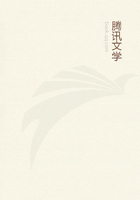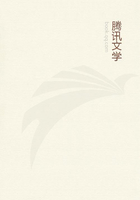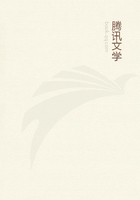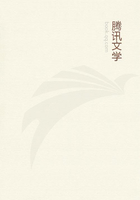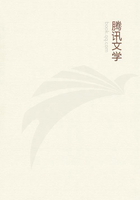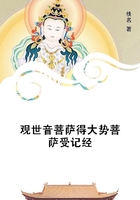He then goes on with penetrating judgement to lay the foundations of a comparative history of art, and concludes by giving the definition of an architectural survey which has been accepted since his time; he requires the ground plan, section and elevation separately of every building that remained.How archaeology devoted itself after his day to the study of the venerated city and grew into a special science, and how the Vitruvian Academy at all events proposed to itself great him, cannot here be related.Let us rather pause at the days of Leo X, under whom the enjoyment of antiquity combined with all other pleasures to give to Roman life a unique stamp and consecration.The Vatican resounded with song and music, and their echoes were heard through the city as a call to joy and gladness, though Leo did not succeed thereby in banishing care and pain from his own life, and his deliberate calculation to prolong his days by cheerfulness was frustrated by an early death.The Rome of Leo, as described by Paolo Giovio, forms a picture too splendid to turn away from, unmistakable as are also its darker aspects--the slavery of those who were struggling to rise; the secret misery of the prelates, who, notwithstanding heavy debts, were forced to live in a style befitting their rank; the system of literary patronage, which drove men to be parasites or adventurers; and, lastly, the scandalous maladministration of the finances of the State.Yet the same Ariosto who knew and ridiculed all this so well, gives in the sixth satire a longing picture of his expected intercourse with the accomplished poets who would conduct him through the city of ruins, of the learned counsel which he would there find for his own literary efforts, and of the treasures of the Vatican library.These, he says, and not the long-abandoned hope of Medicean protection, were the baits which really attracted him, if he were again asked to go as Ferrarese ambassador to Rome.
But the ruins within and outside Rome awakened not only archaeological zeal and patriotic enthusiasm, but an elegiac of sentimental melancholy.In Petrarch and Boccaccio we find touches of this feeling.
Poggio Bracciolini often visited the temple of Venus and Roma, in the belief that it was that of Castor and Pollux, where the senate used so often to meet, and would lose himself in memories of the great orators Crassus, Hortensius, Cicero.The language of Pius II, especially in describing Tivoli, has a thoroughly sentimental ring, and soon afterwards (1467) appeared the first pictures of ruins, with a commentary by Polifilo.Ruins of mighty arches and colonnades, half hid in plane-trees, laurels, cypresses and brushwood, figure in his pages.
In the sacred legends it became the custom, we can hardly say how, to lay the scene of the birth of Christ in the ruins of a magnificent palace.That artificial ruins became afterwards a necessity of landscape gardening is only a practical consequence of this feeling.
The Classics But the literary bequests of antiquity, Greek as well as Latin, were of far more importance than the architectural, and indeed than all the artistic remains which it had left.They were held in the most absolute sense to be the springs of all knowledge.The literary conditions of that age of great discoveries have often been set forth; no more can here be attempted than to point out a few less-known features of the picture.
Great as was the influence of the old writers on the Italian mind in the fourteenth century and before, yet that influence was due rather to the wide diffusion of what bad long been known than to the discovery of much that was new.The most popular latin poets, historians, orators and letter-writers, to- gether with a number of Latin translations of single works of Aristotle, Plutarch, and a few other Greek authors, constituted the treasure from which a few favored individuals in the time of Petrarch and Boccaccio drew their inspiration.The former, as is well known, owned and kept with religious care a Greek Homer, which he was unable to read.A complete Latin translation of the Iliad and Odyssey, though a very bad one, vas made at Petrarch's suggestion, and with Boccaccio's help, by a Calabrian Greek, Leonzio Pilato.But with the fifteenth century began the long list of new discoveries, the systematic creation of libraries by means of copies, and the rapid multiplication of translations from the Greek.
Had it not been for the enthusiasm of a few collectors of that age, who shrank from no effort or privation in their researches, we should certainly possess only a small part of the literature, especially that of the Greeks, which is now in our hands.Pope Nicholas V, when only a simple monk, ran deeply into debt through buying manuscripts or having them copied.Even then he made no secret of his passion for the two great interests of the Renaissance, books and buildings.As Pope he kept his word.Copyists wrote and spies searched for him through half the world.Perotto received 500 ducats for the Latin translation of Polybius; Guarino, 1,000 gold florins for that of Strabo, and he would have been paid 500 more but for the death of the Pope.Filelfo was to have received 10,000 gold florins for a metrical translation of Homer, and was only prevented by the Pope's death from coming from Milan to Rome.Nicholas left a collection of 5,000 or, according to another way of calculating, of 6,000 volumes, for the use of the members of the Curia, which became the foundation of the library of the Vatican.It was to be preserved in the palace itself, as its noblest ornament, the library of Ptolemy Philadelphus at Alexandria.When the plague (1450)drove him and his court to Fabriano, whence then, as now, the best paper was procured, he took his translators and compilers with him, that he might run no risk of losing them.

